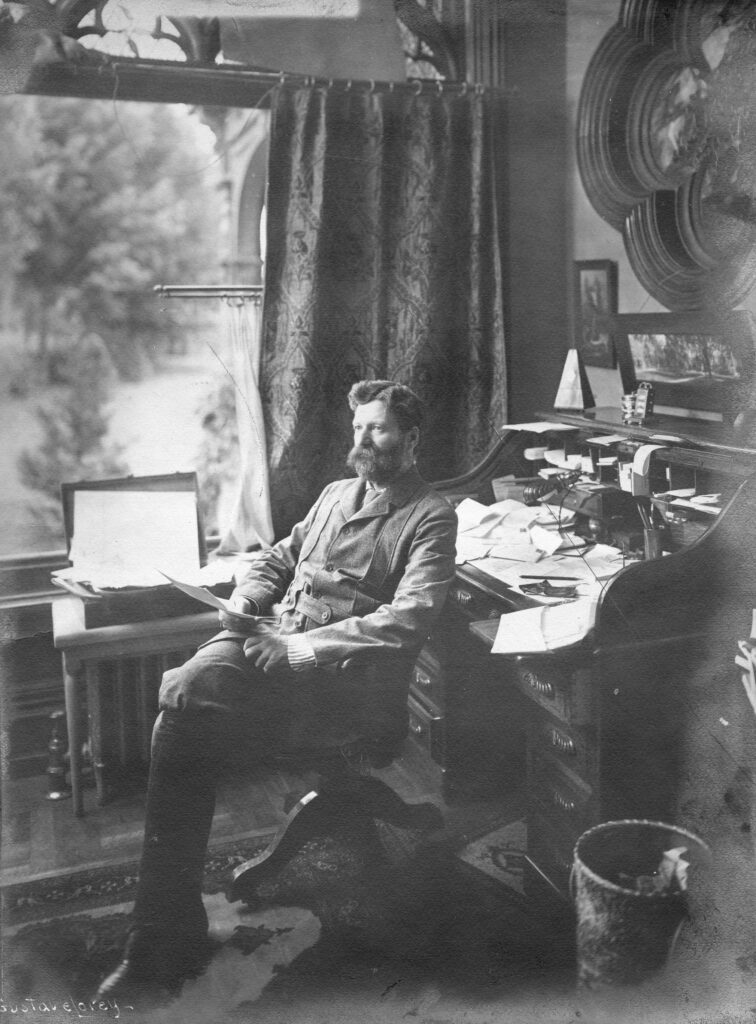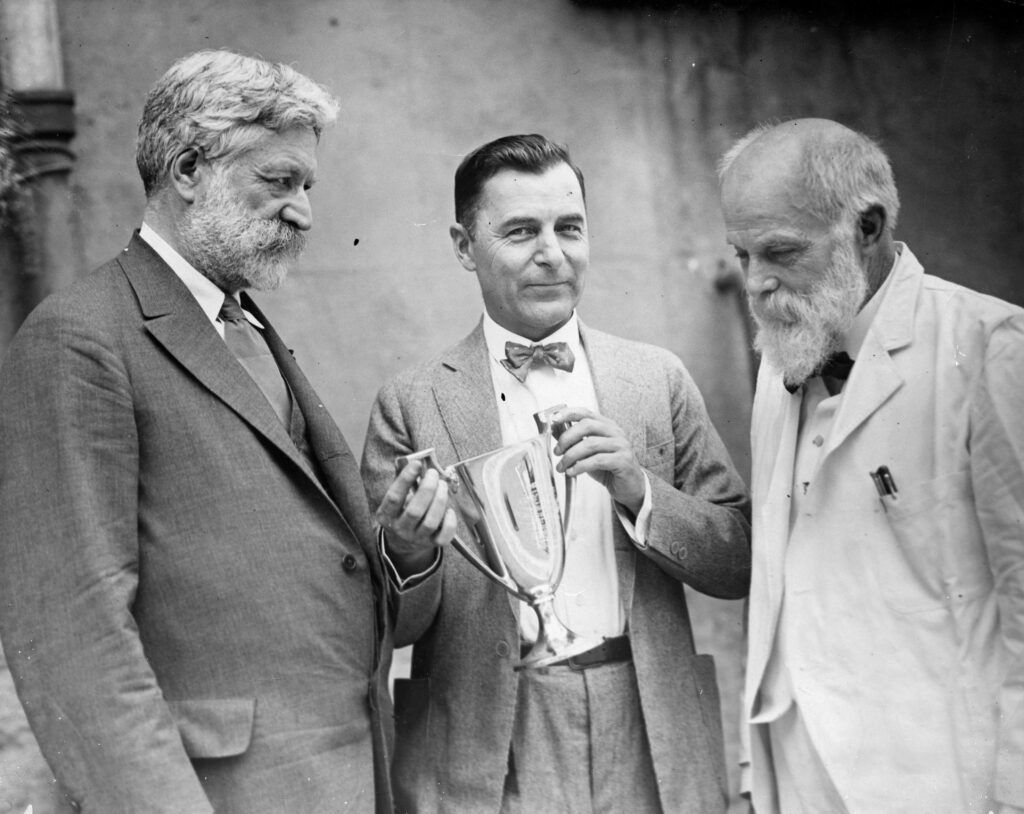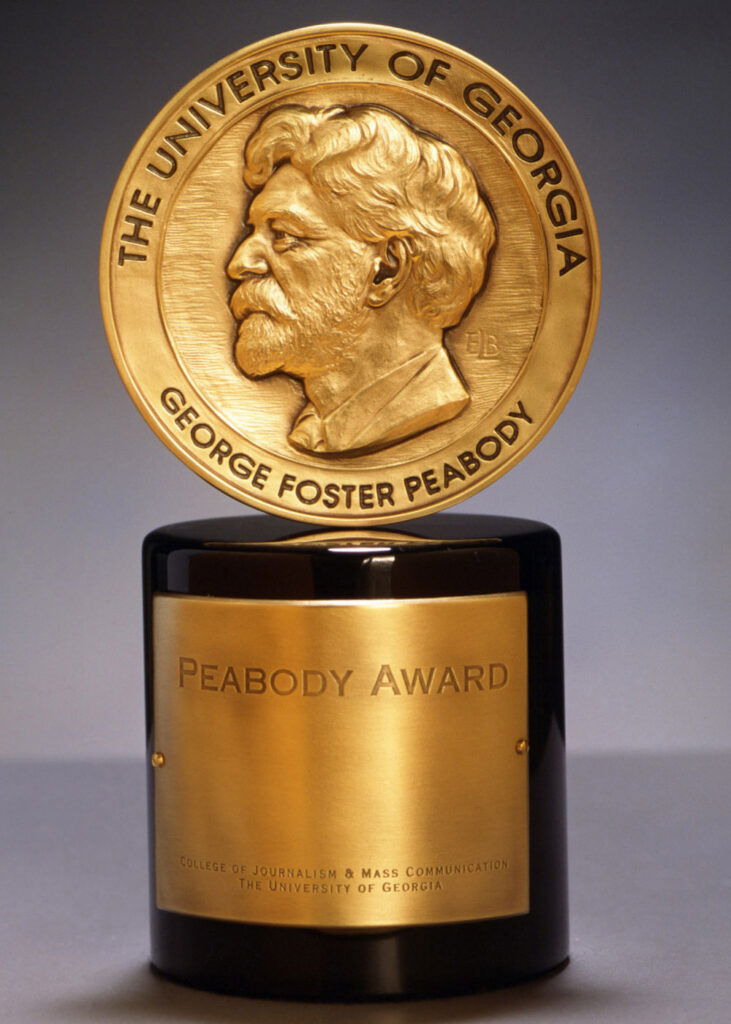George Foster Peabody, noted banker and businessman, left his mark on American society through his philanthropic work. He was born on July 27, 1852, in Columbus, the oldest of four children born to native New Englanders Elvira and George Henry Peabody. Peabody’s father had relocated the family from Connecticut to Columbus, where he ran a general store. Growing up in Columbus, Peabody attended private school and later studied at Deer Hill Institute in Danbury, Connecticut. The Civil War (1861-65) pushed the family into poverty, and by 1866 they had relocated to Brooklyn, New York, where the fourteen-year-old Peabody took a job with a wholesale dry goods firm.
Business Career
The mercantile business proved to be a good choice for Peabody. He joined the Reformed Church of Brooklyn Heights, where he met investment banker Spencer Trask, who became not only a good friend but a business partner as well. In 1881 Peabody became a partner in Trask’s new investment firm, Spencer Trask and Company. During the 1880s and 1890s the company began to work in several lucrative fields, including electrical construction financing and railroad construction in the western United States. Peabody ran most of the company’s railroad investments. Cognizant of such undesirable business practices as rate wars, which were beginning to proliferate in the railroad industry, Peabody advocated government ownership of railroads, and he believed regulation could be the first step in correcting these practices.

Courtesy of Hargrett Rare Book and Manuscript Library, University of Georgia Libraries.
Philanthropy and Politics
After Peabody joined the Episcopal Church in 1880, he became concerned with promoting education both within the church and in the South. He was a member of the board of trustees for the American Church Institute for Negroes, which funded Episcopal schools in the South; the Penn Normal Industrial and Agricultural School in St. Helena, South Carolina; Hampton Institute in Hampton, Virginia; Tuskegee Institute in Tuskegee, Alabama; and the University of Georgia in Athens. Peabody gave money for new buildings and also for the development of new programs and schools at these institutions. His interest in the University of Georgia was sparked by meeting Andrew Patterson, a physics professor from the university, while Peabody was attending a Southern Education Conference. Peabody accepted an invitation from Patterson to attend the school’s centennial celebration in 1885, and at the end of his time in Athens, he was committed to helping the institution achieve greater stature. By the 1900s Peabody’s philanthropic work in education included serving as the treasurer for three boards: the Southern Education Board, the General Education Board, and the Negro Rural School Fund. In 1903 he was granted honorary degrees by both Harvard University in Cambridge, Massachusetts, and Washington and Lee University in Lexington, Virginia.

Courtesy of Hargrett Rare Book and Manuscript Library, University of Georgia Libraries.
An interest in the education system of his native state led Peabody to become one of the University of Georgia’s main benefactors. The Peabody Awards, the most prestigious awards given in broadcasting, are awarded by the Grady College of Journalism and Mass Communication at the University of Georgia and bear not only Peabody’s name but also his likeness on the medals. The awards were first given out in 1941. His adopted daughter, Marjorie Peabody Waite, served on the first Peabody advisory board and commissioned the design of the medals. Peabody was also awarded an honorary degree from the University of Georgia and made a life trustee of the university by a special legislative act in 1906.

Courtesy of University of Georgia Photographic Services
In 1921 Peabody married Katrina Trask, the widow of Spencer Trask, at Yaddo, an artists’ community founded by the Trasks on their 400-acre estate in Saratoga Springs, New York. Katrina Trask, who had been in frail health, died on January 8, 1922, less than a year after their marriage.
In 1923 Peabody purchased a residence at Warm Springs, where he died on March 4, 1938. His ashes were later interred at Yaddo, in a grave near his wife.
































